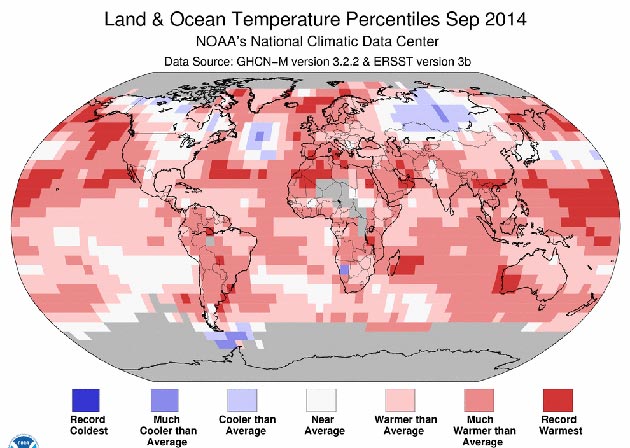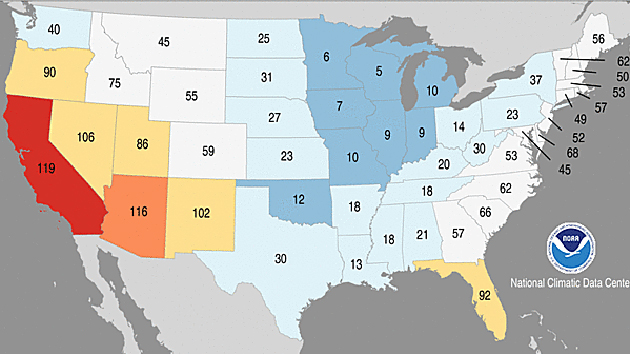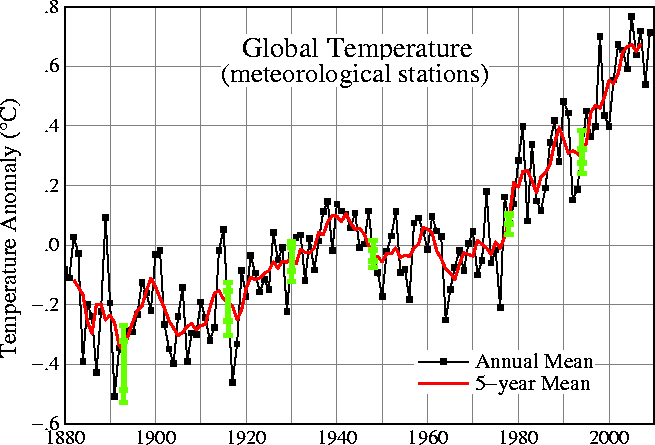
A woman drinks water and rests under the shade of a tree in Jammu, India. Regions of northern India have reached 115 degrees F.Channi Anand/AP
This story originally appeared in Slate and is republished here as part of the Climate Desk collaboration.
A few days ago, I told you that—according to NASA data—we just finished the warmest six-month streak on record. Welp, it just got worse.
According to data released Monday by the National Oceanic and Atmospheric Administration, last month was the warmest September on record globally. What’s more—and here’s the kicker—the NOAA says the Earth has just completed its warmest 12-month period on record. From the NOAA:
The past 12 months—October 2013–September 2014—was the warmest 12-month period among all months since records began in 1880, at 1.24°F above the 20th century average. This breaks the previous record of +1.22°F set for the periods September 1998–August 1998, August 2009–July 2010; and September 2013–August 2014.

Though this record-setting “year” is likely to go unheralded compared with a calendar year record, it’s actually more impressive statistically. (Each calendar year contains a dozen 12-month-period starting points. Starting the year in January is completely arbitrary.) But, don’t fret, the NOAA says we’re still on pace to beat the calendar year record in 2014, too.
On Monday, the NOAA also announced that global oceans are again record-warm—the third time this year that ocean temperatures have soared to new heights. The most recent record was set just last month. Ocean warming has implications for the health of coral reefs, sea level rise, and weather patterns worldwide.
What’s most shocking about our planet’s current warm stretch is that the heat records are being broken without an El Niño—the periodic oscillation that warms the Pacific Ocean. But, one of those is on the way, too—and it might stick around for a while.
So far in 2014, record-setting hot spots have been scattered almost uniformly across the globe, from Alaska to California to Cuba to Scandinavia to Brazil to Australia. A couple of exceptions: The eastern United States has been one of the coldest spots on the planet, relatively speaking. So has coastal Antarctica, where record amounts of sea ice have been recorded—strangely, also possibly connected to global warming.
















